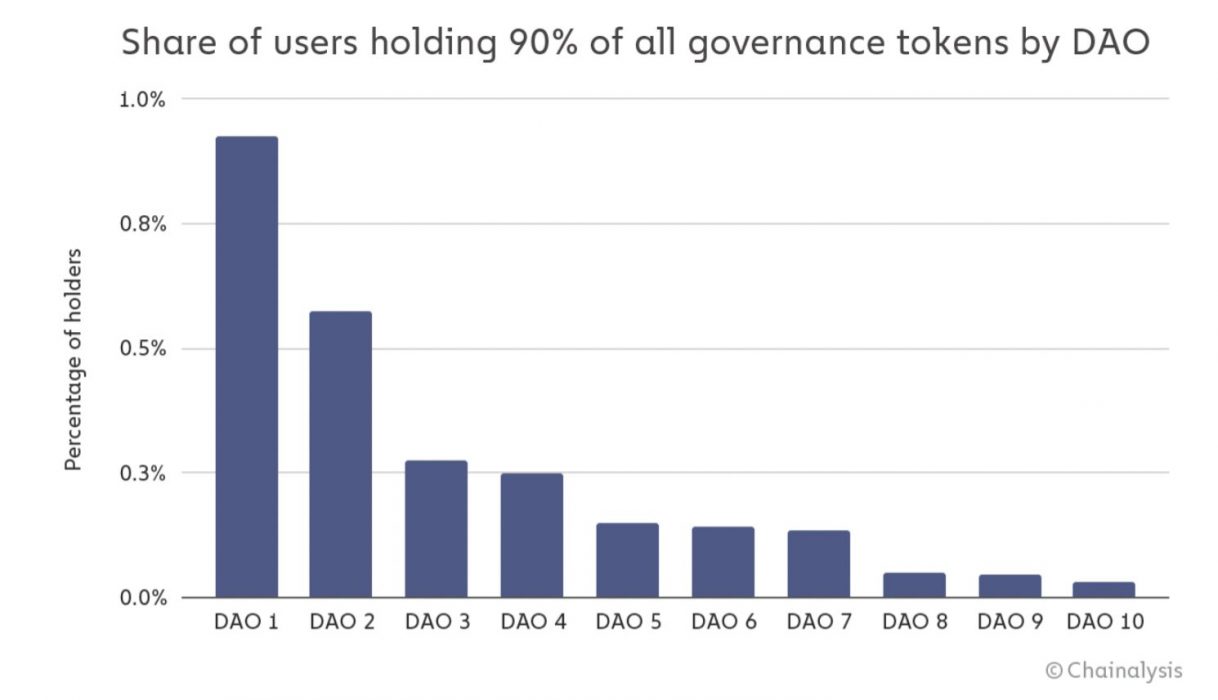According to data from research firm Chainalysis, a user must hold somewhere between 0.1 and one percent of the total token supply of a decentralised autonomous organisation (DAO) to create a proposal, and somewhere between one and 4 percent to pass such a proposal.
DAOs are organisations originally set up without a centralised hierarchy and intended to work in a bottom-up manner so that a community can collectively own and contribute to the decision-making process. However, recent data suggests they are not working in as decentralised a manner as they were intended to be.
Chainalysis conducted research on the workings of 10 major DAO projects and found that, on average, less than one percent of all holders had about 90 percent of the voting power:

The report highlighted that although all governance token holders had voting rights, the right to make a new proposal for the community and to pass it was not as easy for everyone, as each token corresponded to a set amount of voting power within the organisation. Chainalysis estimates that between one in 1,000 and one in 10,000 governance token holders had enough tokens to create a proposal. Passing a proposal was even more difficult, with only between one in 10,000 and one in 30,000 holders having enough to do so.
DAOs All the Rage
As DAOs become increasingly popular in the ever-expanding crypto ecosystem, they are often seen as the future of decentralised corporate governance. As such, regulating them is just a matter of time, as Australian pro-crypto Senator for NSW Andrew Bragg argues. Bragg has said that DAOs pose an “existential threat to the tax base” since they are recognised as partnerships and as such are not liable to pay company tax.
Disclaimer:
The content and views expressed in the articles are those of the original authors own and are not necessarily the views of Crypto News. We do actively check all our content for accuracy to help protect our readers. This article content and links to external third-parties is included for information and entertainment purposes. It is not financial advice. Please do your own research before participating.
Credit: Source link





















